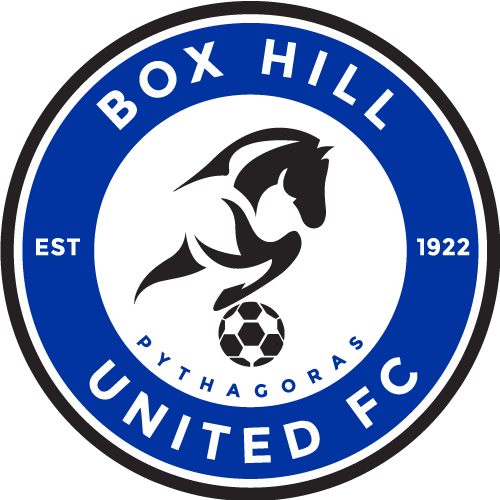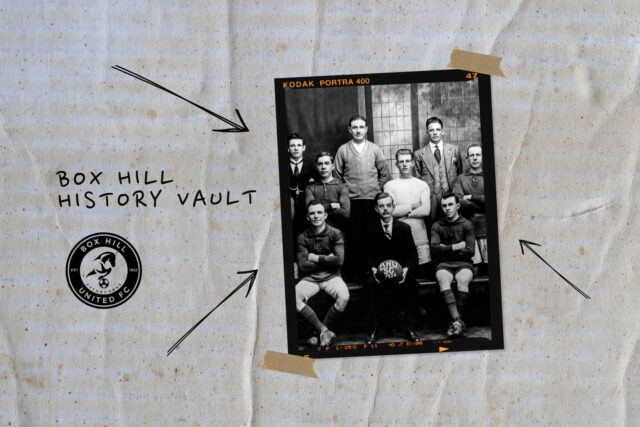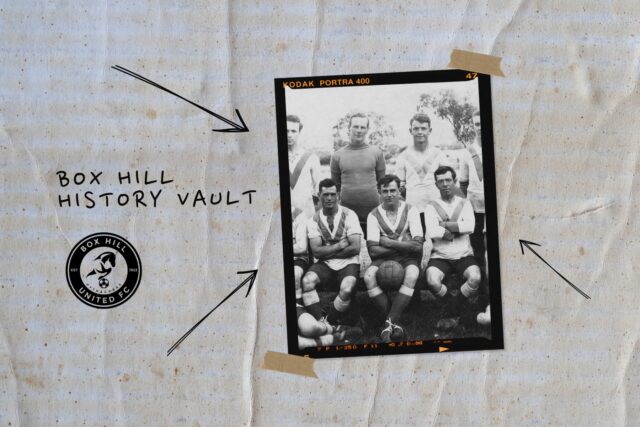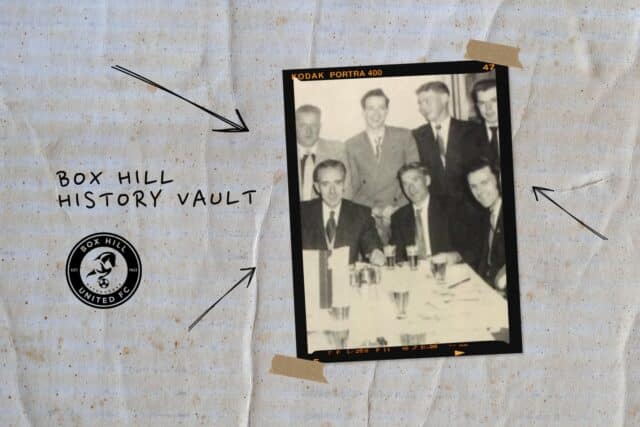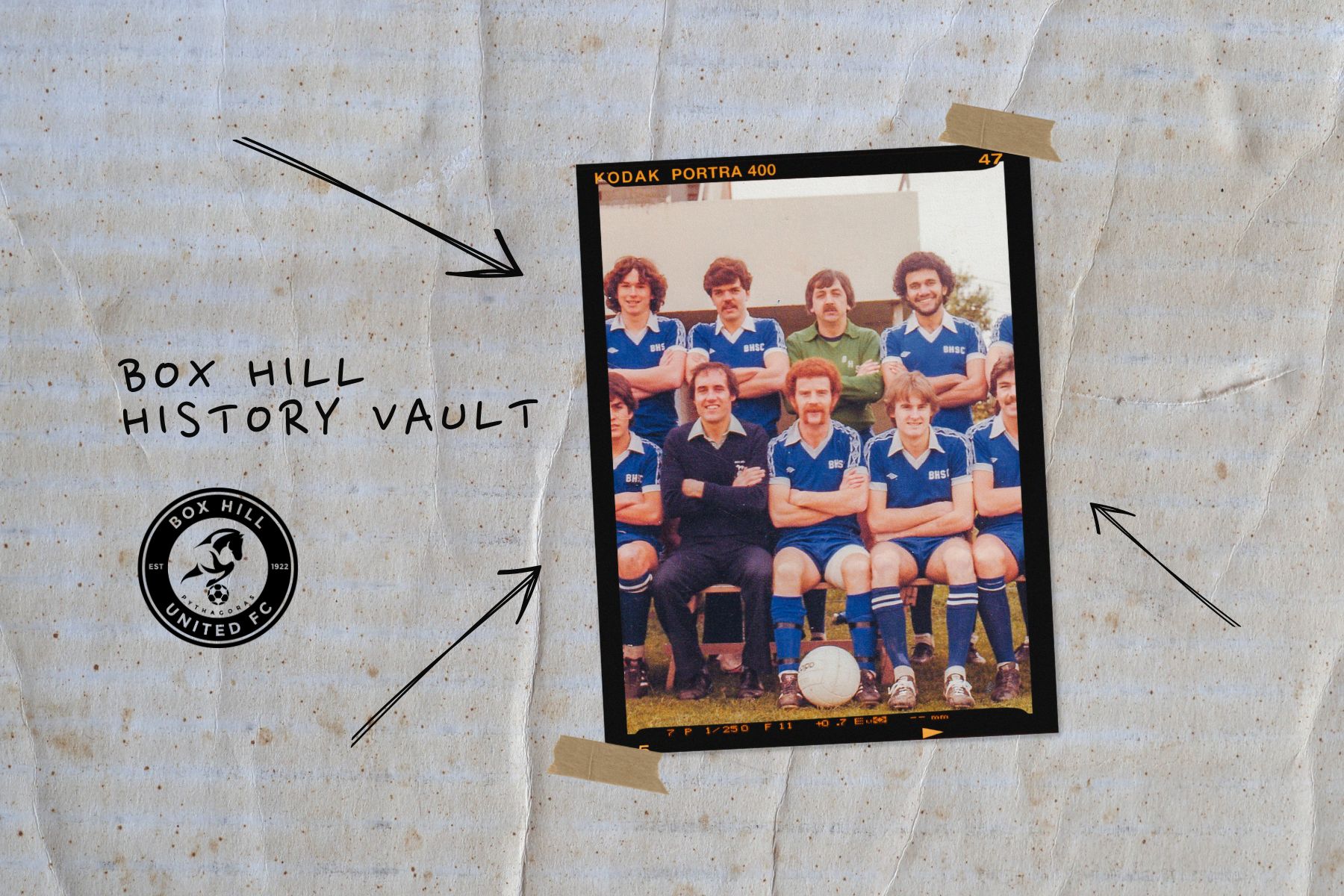
Box Hill’s Golden Generation
A Junior Revolution that saw Box Hill Soccer Club become a production line of talented home-grown players was sparked in 1978. That year a Golden Generation in Box Hill’s under 16 team won the State Junior Cup (then known as the JLMC Cup), sweeping aside the traditional powerhouses of junior football in Melbourne’s western suburbs.
Coached by former Box Hill senior player Walter Patterson, the under 16 team had players of a high calibre including Scott Patterson (Walter’s son), Michael Valentine, Greg McLeod, David Singleton, Ian Roodhouse and Peter Verechia among others. This group would be playing first team football the following year in 1979 as key players in a youthful, vibrant team. Patterson and Valentine would eventually play in the National Soccer League; Patterson for Heidelberg Alexander and Brunswick Juventus, Valentine for Heidelberg. The 1979 first team included other Box Hill junior products Pedro Ramos, Kyle Patterson and Craig White, the son of club stalwart Tommy White, who was first team coach in 1979.
In years to come, Gary McPhee, Craig Davidson and Alan Roodhouse would continue to come from the production line of talented Box Hill junior progressing to the senior ranks. Notably, almost all of these players had fathers who had played for Box Hill. It was a compelling story of history and family bonds. The players coming through from the junior ranks had a pride and loyalty in wearing the Box Hill colours and weren’t initially motivated by money. This was good news for Box Hill.
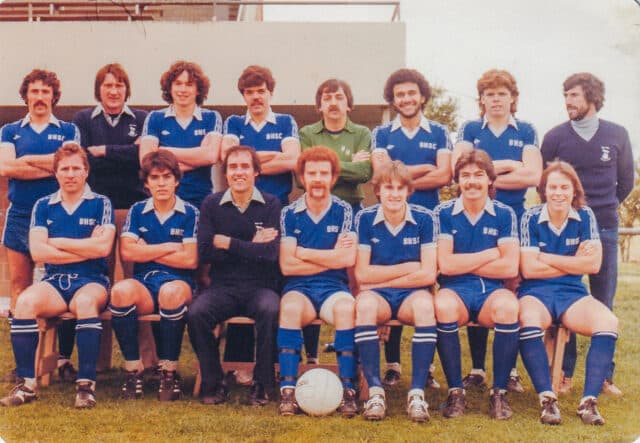
The 1981 Box Hill first team including six home-grown players; Greg McLeod, Kyle Patterson, Scott Patterson, Pedro Ramos, Michael Valentine and David Singleton.
The transformation was rapid. In 1977, Box Hill’s first team squad was predominantly comprised of British-born players who had migrated to Australia. There were only a couple of Australian-born first team players in this period, most notably Serge Berardini, a swash-buckling striker, and Micky Pearce, a lanky goalkeeper who looked like a surfer. By 1979, the ratio had totally flipped. Most of the first-team squad were Australian-born players who had come through the Box Hill junior ranks, supplemented by a few experienced British-born players, most notably key defender and captain Paul Corke.
There were two key factors at play. Firstly, Box Hill suffered another downturn in finances after investing in a failed push to win promotion to the State League in 1977. That meant players who were playing for money left when the wages were cut. However, the most significant factor was the abundance of talent emerging from the club’s junior ranks.
The production line started in the early 1970s. Bob Bedford, the brother of the legendary South Melbourne Hellas defender John Bedford, nurtured a talented group of young local players, including Gary Lyddieth, Stephen Jensink and Robert Lewicki. In 1973, the Box Hill under 13 team coached by Bob won the state-wide Ampol Cup, beating Altona 2-1 in the final. The star player for Altona was Alan Davidson, who later played for the Socceroos and had stellar career in club football in Australia and Asia.
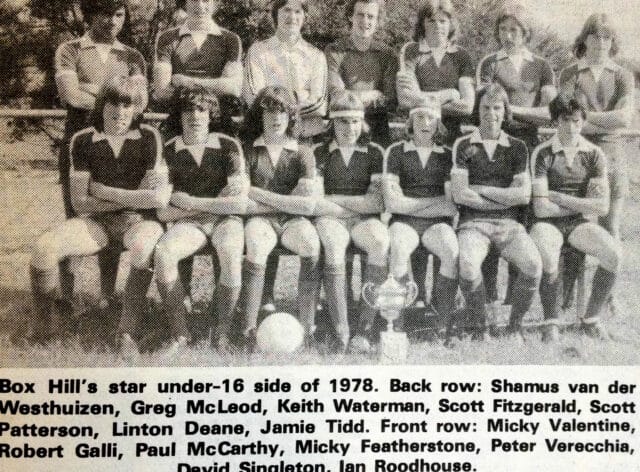
The Golden Generation; Box Hill’s under 16 team won the 1978 State Cup. Many in this squad would progress to the 1979 first team and eventually play a major role in Box Hill’s return the State League in 1983
This Junior Revolution provided a springboard for Box Hill’s eventual return to the State League after a nine-year absence that stretched from 1974 until 1983. The project took shape in 1979 with a young, mostly home-grown team that did well to finish 7th in the Metropolitan League First Division under coach Tom White. The team improved to 5th
position in 1980 and 4th in 1981, under new coach Bill Murray. It all came together in 1982 under Bill Murray. With the bulk of the team being ex-juniors, Box Hill was neck-and-neck all season with fellow promotion chasers Fawkner, eventually finishing in 2nd place in the First Division, enough to secure promotion. As a mark of the team’s exceptional season, Box Hill was the top scoring team in the First Division with 79 goals in 26 matches, while having the tightest defence, conceding only 21 goals. To cap off a brilliant year, Box Hill won the Metropolitan League Cup, the renamed Cumberland Cup for teams outside the State League.
Facts and insights in this story by Kyle Patterson


